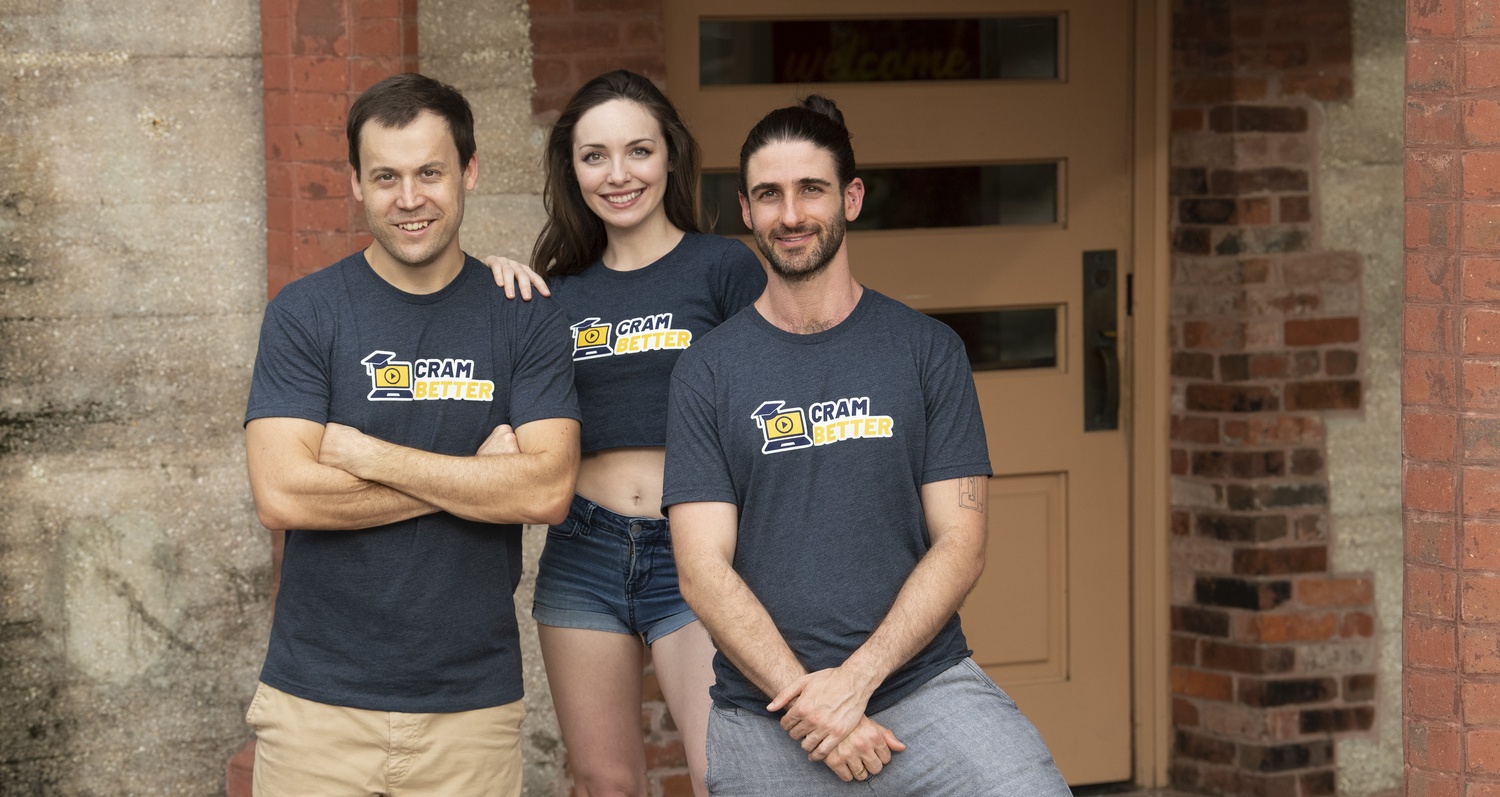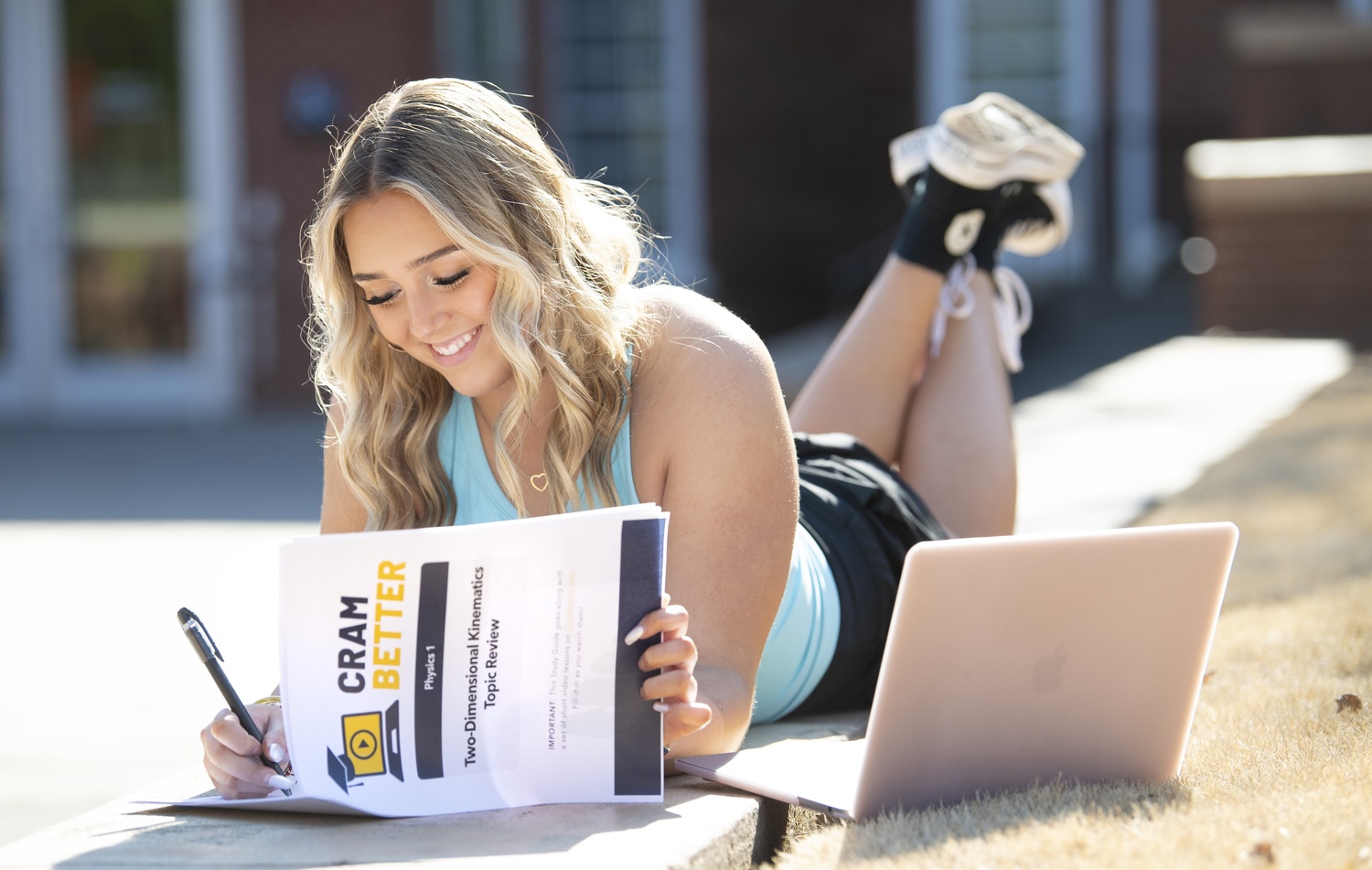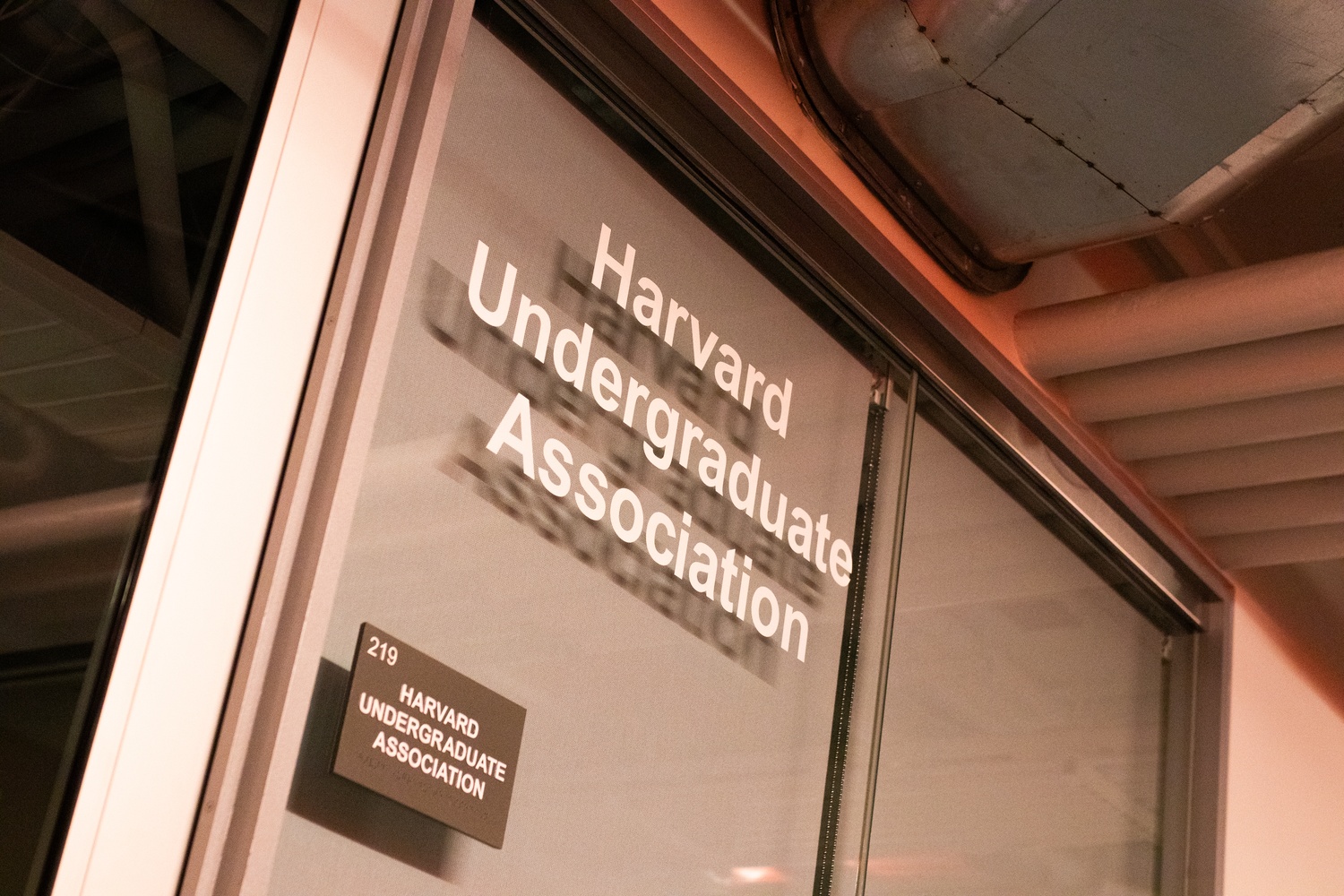College Study Website ‘CramBetter’ Rivals ChatGPT for STEM Classes
In recent years, generative artificial intelligence services have achieved near-ubiquitous uptake among college students, supposedly heralding the next wave in education. But at this seemingly unlikely time, a new study aid powered by human teachers is exploding in popularity across university campuses, particularly among premedical and engineering undergraduates.
In August of 2023, nine months after the public debut of ChatGPT, CramBetter opened its doors — initially offering tutoring at the University of Central Florida (UCF) and the University of South Florida (USF). Today, the service has spread to students at more than 100 colleges and universities in the United States.
Human-Powered College Physics, Chemistry and Math Tutoring
CramBetter describes itself as a “24/7 online study tool” and offers round-the-clock tutoring for college-level STEM courses including physics, chemistry, and calculus. Rather than serving up AI-generated content, all of CramBetter’s materials are delivered by expert tutors who each hold a minimum of a master’s degree in their field and speak English natively.

CramBetter’s tutors record concise video lessons on each topic for a given university course’s curriculum. “Our goal is to get students better grades in less time,” said Steven Keys, co-founder of the company. “We’re not here to put you to sleep like a typical lecture. When you watch a CramBetter video, you’re only getting the most important stuff for the test — and maybe a couple of jokes thrown in there just to make sure you stay awake.”
The CramBetter Online Study Toolkit
As students watch a set of short-and-sweet “Topic Review” videos, they also fill in a tailor-made CramBetter Study Guide which syncs up to the video contents and highlights the most important formulas, concepts, and shortcuts. Students are able to print these Study Guides or interact with them using a stylus on a tablet. A great deal of research, including a recent paper by Frontiers in Psychology, indicates that hand-writing notes in this way significantly increases student engagement.

After completing a Topic Review, students are invited to take a CramBetter Practice Exam to determine their readiness for in-class assessments. If a student gets one of the questions wrong, they can instantly watch a video solution recorded by one of CramBetter’s tutors, and even ask that tutor questions personally via the platform’s web interface.
CramBetter vs. AI Study Apps and Traditional College Tutoring
AI study tools are ubiquitous, but aren’t necessarily effective. Critics warn that ChatGPT is overwhelmingly being used by college students as a cheating tool for at-home assignments, which tends to leave them unprepared for tests and in-class quizzes.
“A lot of students are using ChatGPT to do their homework for them, which might be worth 5% of their course grade,” said Keys. “Our tutors are focused on getting students to actually learn the material so they can pass their exams, which represent more like 50-80% of their grade.”
https://www.youtube.com/watch?v=DCMbys_Wd6Y
In an age where students are accustomed to answers from chatbots and AI-powered study websites, CramBetter offers a human touch, which its founders believe makes all the difference. But how does CramBetter’s online approach stack up against traditional one-on-one private tutoring?
According to Tutor Cruncher, traditional college tutoring ranges in price from $60 to $110 per hour and is often supplied by fellow undergraduate students. By contrast, CramBetter has a subscription model, providing unlimited tutoring from instructors with advanced degrees at a monthly rate of just $40 per course.
“We hire expert tutors who used to charge $200 or more per hour for private sessions independently,” said Keys. “They’re able to make more money through CramBetter while charging customers less, because our unique web platform allows them to help many students at a time instead of just a handful of rich clients. It’s a more scalable and accessible business model.”
And it appears to be working. As of November 2025, CramBetter has provided physics, chemistry, and math tutoring to thousands of students across more than 100 US colleges and universities, and its growth shows no signs of slowing down.
Interested readers can visit the CramBetter website for more information on its college tutoring services
After Opaque Process, HUA Election Commission Keeps Survey Results on Israel Divestment Under Wraps

Updated November 19, 2025, at 1:48 p.m.
The Harvard Undergraduate Association’s Election Commission will not publicly share the results of a survey asking whether students support University divestment from “companies and institutions operating in Israel.”
The Commission also declined to release figures to The Crimson that would make it possible to calculate how a majority of respondents answered the question.
Survey results show that 8.4 percent of all 7,103 Harvard College students support the University divesting from “companies and institutions operating in Israel,” according to Assistant Dean of Student Engagement and Leadership Andy Donahue and a member of the Election Commission.
Donahue, who is an adviser to the HUA and the HUA Election Commission, and the member declined to share the number or percentage of “no” respondents, but added that more than 80 percent of the total student body answered that they were “uncertain, skipped the question, or did not answer the survey at all.” They declined to share a more precise percentage.
The Election Commission member also shared that 6 percent of all Harvard College students said Harvard should not have adopted the International Holocaust Remembrance Alliance definition of antisemitism, and 9.3 percent of all Harvard College students said they thought Harvard should disclose its investments in Israel. They declined to provide respondent totals or comprehensive answer counts for either survey question.
The limited information provided by the Election Commission prevents conclusions from being drawn from the data. The body declined to release results for more than one answer option for each question — making it impossible to conclude the majority opinion of respondents for individual questions. They also did not provide an explanation for reporting the results as a percentage of all Harvard College students, though only a small fraction of undergraduates vote in even the most publicized HUA elections.
The Commission cited a policy against publicly sharing survey results, which it says are designed to inform student groups that use the survey process to gauge public opinion among undergraduates. No such policy exists publicly in writing, and Donahue and Commission members did not respond to questions about the policy.
The HUA’s most recent campaign guidelines do not specify whether results for student group survey questions will be announced to all students, but state that results will “be released in a non-leading manner.” The Election Commission conducted most of the survey process without circulating updated guidelines for this semester, but the HUA posted the 2024-25 guidelines on its website Tuesday morning, more than halfway through the voting period.
Rather than with the full student body, results to the survey questions will only be shared with the two pro-Palestine student groups that submitted the questions: the Harvard Undergraduate Palestine Solidarity Committee and Harvard Undergraduate Jews for Peace. In a Wednesday morning email to the PSC, Donahue “asked for patience” as the Election Commission verifies results and that “they will be in touch soon,” but did not provide a specific timeline.
The election form also contained eight questions submitted by the HUA, which operates separately from the Election Commission, in addition to the PSC and Jews for Peace questions. Responses to the eight questions — which polled students on issues including campus transit, grading policy, and student ID cards — will also not be released publicly, according to a Commission member.
The opacity of the survey process, which was conducted simultaneously with elections for the HUA Sports Team Officer, began long before voting closed on Tuesday.
Throughout the voting period, the Commission also limited participation in the survey results by placing the optional survey questions behind a mandatory vote for the Sports Team Officer position and not allowing survey questions student organizations to publicize the questions they submitted. Voting students were required to rank all three Sports Team Officer candidates before seeing what the survey questions were.
Donahue and the Commission also strenuously emphasized that the survey results were nonbinding. In a Tuesday email to the College’s full student body, they accused The Crimson of sharing “misinformation” over objections to the use of the word “vote” in a Crimson article describing the survey process.
“The survey questions are not votes on the issues presented,” Donahue and the Election Commission wrote. “The survey results have no impact on the Harvard Undergraduate Association, Harvard College, or Harvard University.”
In interviews with The Crimson, undergraduates said they were unaware of the survey questions until Tuesday.
“I had seen an email for the HUA elections that were happening, and I saw that the candidates were in the email, but I didn’t see any other questions or surveys after that,” Aiden E. Zaphiris ’28 said.
“I think if they wanted people to answer the questions, they probably could have pubbed it a little bit better, like maybe in a separate email or something,” he added.
The Election Commission also used its campaigning regulations to repeatedly discourage students in organizations that submitted questions from discussing them with fellow students.
Violet T.M. Barron ’26, a member of the PSC and a Crimson Editorial editor, was notified Tuesday night that the Commission “received a complaint” that she had posted a “campaign-related message in a group chat.” The Commission wrote that, after reviewing the matter, the student would be “receiving a stern warning for violating HUA campaigning rules.”
The message found to be in violation was a response to another text in a 150-person group chat of Harvard Hillel members asking members to vote in the survey on the IHRA and divestment questions, which the sender accused of “specifically targeting Israel and the Jewish community.” The original sender requested members of the group chat vote “yes” on the IHRA question, and “no” on the divestment and disclosure questions.
Barron was then found to violate campaign guidelines for her response to the student’s message. In the message, Barron argued that “to say these questions target Jews is wholly unfair,” and “everyone is of course welcome to vote how they like – the whole point of a survey like this is to gauge student opinion, not push a political agenda.”
Donahue did not immediately respond to a request for comment on the exchange.
The Election Commission wrote in a Tuesday morning statement to The Crimson that the “primary purpose of the fall election is to elect the HUA Sports Officer.”
Donahue did not share the HUA’s own survey question results or the winner of the Sports Team Officer election with The Crimson. The Sports Team position’s three candidates were Mark S. Guzelian ’29, Ocean Ma ’28, and Jack G. Smith ’29.
Ma was elected the Sports Team Officer, Donahue confirmed on Wednesday.
—Staff writer Julia A. Karabolli can be reached at julia.karabolli@thecrimson.com.
—Staff writer Claire L. Simon can be reached at claire.simon@thecrimson.com. Follow her on X @ClaireSimon.
